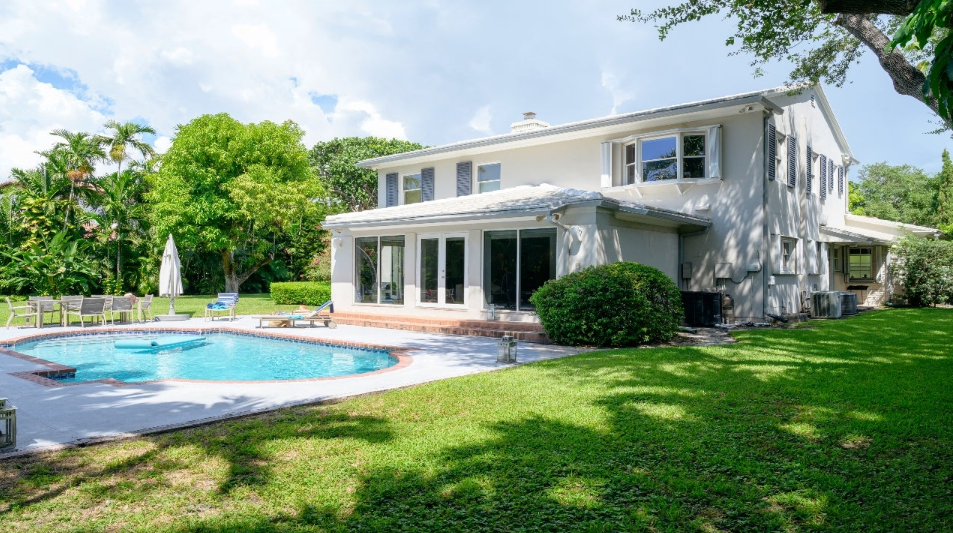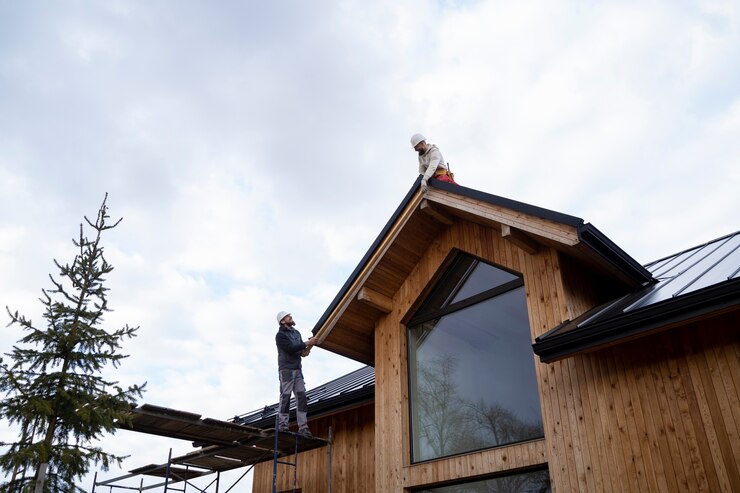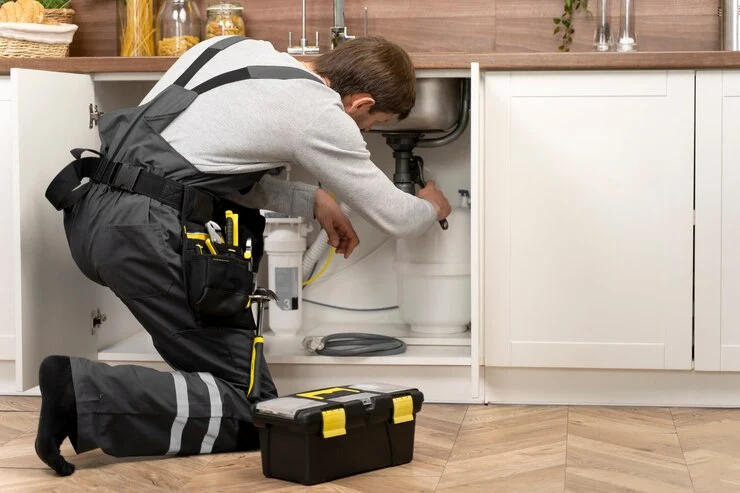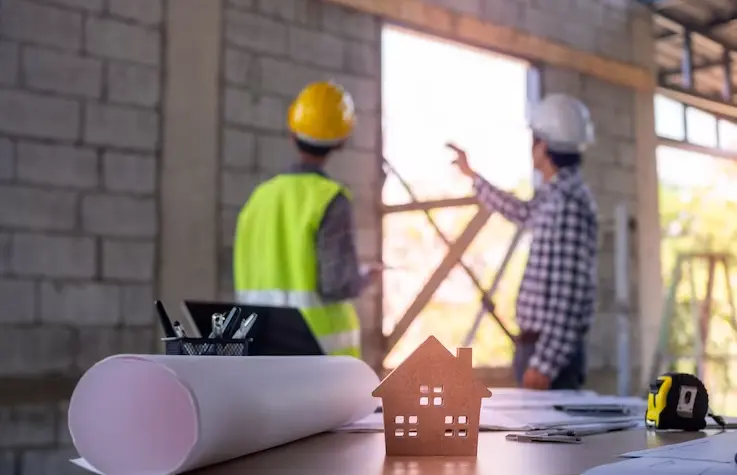Homeownership is a serious investment, and always an exciting one. As you dream of a home that’s just right for you and your family, don’t forget to think about how you want to use it. If you’re looking for a way to upgrade your outdoor living space and make your backyard that much more inviting, adding a swimming pool may be the perfect solution.
There’s something magical about having a pool in your own backyard, but there are some important considerations before taking the plunge. Before we dive into the details, let’s review what goes into adding a swimming pool to your first home. In this guide, we’ll cover everything from budgeting to rules and regulations so that you can make an informed decision about whether or not it’s the right move for you.
What Are the Benefits of Adding a Swimming Pool?
Have you been dreaming of adding a swimming pool to your first house? You’re not alone—an outdoor pool is an attractive feature that has homeowners across the country booking their first plumbing appointment. But before you go ahead and sign the dotted line, it’s important to consider the pros and cons.
Adding a swimming pool to your first house has many great benefits. To start, you’ll have a convenient and accessible area for exercise, relaxation, and quality family time. You can use it to cool off in the summer months, host outdoor gatherings with friends and family, or use it as an outdoor extension of your home. Many people find that having a pool increases their overall happiness by providing an escape from daily pressures. It also adds an attractive aesthetic value to any backyard setting, making it a great conversation piece for potential buyers if you ever decide to sell your home.
You May Also Like: Home Owners Guide to Standard Sliding Screen Door Sizes
Consider the Maintenance Requirements for a Swimming Pool
When it comes to owning a pool, the maintenance requirements may seem overwhelming at first. But don’t let that scare you away! You just have to take it one step at a time and develop a plan for routine upkeep.
To start, you’ll need to get your hands on some pool cleaning supplies like a skimmer, brush, vacuum, and leaf net. You’ll also need to purchase some chemicals like chlorine and pH balancer—these will help keep the water clean and safe. Additionally, you should look into filter systems that can help reduce the manual labor required for cleaning and maintain your pool’s longevity and health.
Of course, these are only the start and your responsibilities will grow as you learn more about pool ownership over time. But with careful planning and routine maintenance, owning your own swimming pool can bring endless hours of fun for you and your family for years to come!
What Are the Cost Implications?
You may have heard that pools can be expensive to install, but just how much will it cost? Well, it depends on the size and type of pool you’re looking to build—above-ground pools can cost as little as $1,500 while in-ground pools can range from $15,000 – $100,000+ depending on the amount of landscaping and decorative features you want.
Labor Costs
Labor costs vary a lot depending on the experience of the installers. Not all pool companies are created equal—some may offer affordable installations with lower quality materials; others may offer premium service but with a higher price tag. Take a look at customer reviews online and ask around for recommendations before making your final decision on who to hire for the job.
Services & Maintenance Fees
You’ll also need to factor in ongoing maintenance fees as swimming pools do need regular cleaning and servicing to ensure they’re safe and functioning properly. The costs of services like water testing, chemical balance checks and cleaning supplies will add up over time—you should look into the average costs of these combined services so that you’re not surprised by an unexpectedly high bill later on.
Other Considerations
Finally, don’t forget to consider other things that’ll come along with having a swimming pool such as homeowners insurance rates going up, higher electricity bills due to running pumps and filters and any additional fencing or safety equipment needed if you have children or pets in your home. It’s important to take into account all potential costs when making your decision about whether or not owning a pool is right for you.
Is a Swimming Pool a Good Investment?
Generally speaking, it’s not recommended to add a swimming pool to your first house, primarily due to the cost. Swimming pools can be costly to install, not to mention the additional cost of regular maintenance. However, it is possible that a swimming pool could be a good investment if you put in the time and effort of taking proper care of it.
One of the clear advantages is that when you eventually sell the house, having a swimming pool might make it more attractive to potential buyers. It could even help you command a higher price tag and make back some of your initial investment.
If you decide that a swimming pool is right for you and your home, remember that there are a few more costs associated with owning one:
- Insurance: Depending on your location and the size of your pool, extra insurance may be necessary
- Maintenance: To keep your pool safe and running smoothly, regular upkeep is essential—this means routine checks on pH levels, cleaning filters and skimmers regularly, vacuuming, brushing walls and checking for any algae buildup
- Supplies: In order to do all this maintenance, you’ll need specific supplies like chlorine tablets or algaecide
Ultimately, deciding whether or not to buy a swimming pool should be based on both practical considerations as well as personal preference. By carefully considering all aspects of installation costs, maintenance expenses and future resale value—not just the fun factor—you can determine whether or not adding a swimming pool to your first house is worth it for you.
Conclusion
Before you decide to add a swimming pool to your first home, it’s important to consider the financial, legal, and logistical aspects of getting one installed and properly maintained. Furthermore, a swimming pool brings with it a host of safety concerns, both in terms of water safety and the safety of your family.
Ultimately, whether or not you decide to add a swimming pool to your home is a personal decision. But by taking the time to investigate all the details and do your due diligence, you’ll be able to make an informed decision and determine whether a swimming pool really is the best addition to your first house.
You May Also Like: How To Find The Best Home Served Companies in Knoxville, TN




